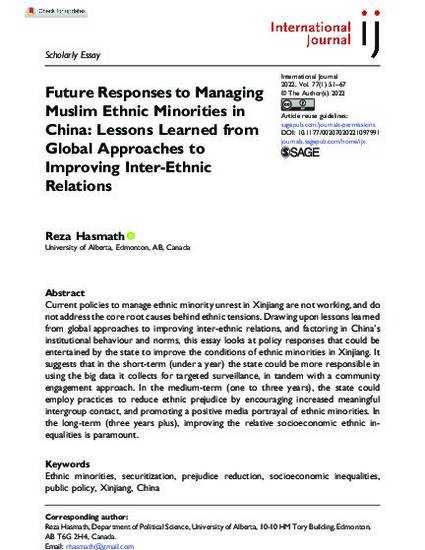
Article
Future Responses to Managing Muslim Ethnic Minorities in China: Lessons Learned from Global Approaches to Improving Inter-Ethnic Relations
International Journal
(2022)
Abstract
Current policies to manage ethnic minority unrest in Xinjiang are not working, and they do not address the core root causes behind ethnic tensions. Drawing upon lessons learned from global approaches to improve inter-ethnic relations, and factoring China’s institutional behaviour and norms, this essay looks at policy responses that can be entertained by the state to improve the conditions of ethnic minorities in Xinjiang. It suggests that in the short-term (under a year) the state can be more responsible in using the big data it collects for targeted surveillance, in tandem with a community engagement approach. In the medium-term (1-3 years), the state can employ practices to reduce ethnic prejudice by encouraging increased meaningful intergroup contact, and promoting a positive media portrayal of ethnic minorities. In the long-term (3 years plus), improving the relative socio-economic ethnic inequalities is paramount.
Keywords
- Ethnic Minorities,
- Securitization,
- Prejudice Reduction,
- Socio-Economic Inequalities,
- Public Policy,
- Xinjiang,
- China
Disciplines
Publication Date
2022
Citation Information
Hasmath, R. (2022) "Future Responses to Managing Muslim Ethnic Minorities in China: Lessons Learned from Global Approaches to Improving Inter-Ethnic Relations", International Journal 77(1): 51-67.
